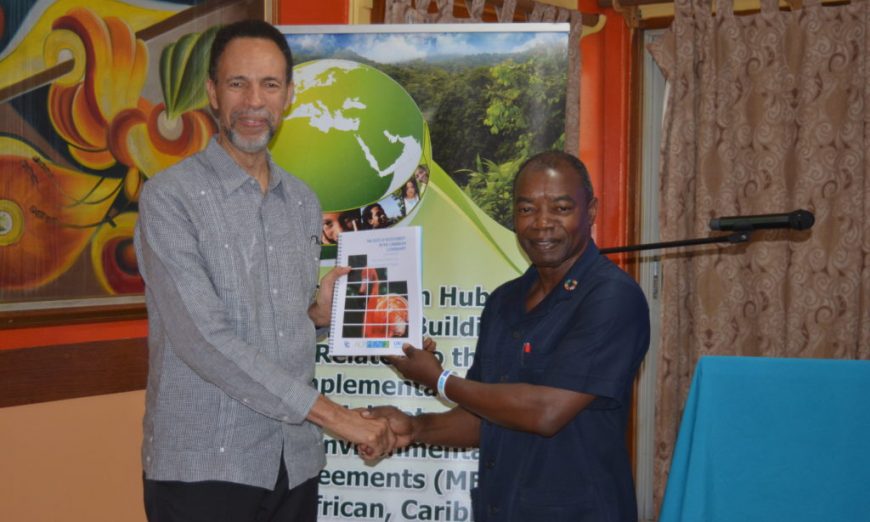International: The Caribbean Community (CARICOM) has recorded a significant milestone with the release of a report on the state of biodiversity management in the Region.
The report examines how CARICOM Member States have progressed in meeting their commitments under the Aichi Biodiversity Targets within the framework of the Convention on Biological Diversity (CBD).
Titled: The State of Biodiversity in the Caribbean – A review of the progress towards the Aichi biodiversity targets, the report was launched on Wednesday 24 October 2018 at the opening of the Caribbean Regional Preparatory Workshop for the 14th Conference of the Parties (COP) for the CBD and Regional Consultation for Phase III of the Programme for Capacity Building related to the Multilateral Environmental Agreements (MEAs) in the African, Caribbean and Pacific (ACP) countries. That meeting concludes on Friday 26 October at the Grand Coastal Hotel, Guyana.
Ambassador Colin Granderson, Assistant Secretary-General, Foreign and Community Relations said that the preparation of the report was a unified effort among the CARICOM Secretariat, UN Environment, CARICOM Member States and regional biodiversity experts. He expressed appreciation for the financial support from the European Union and the implementation support from UN Environment.
He said the CARICOM Secretariat also recognises the role played by the OECS Commission, CBD Secretariat, and CANARI in developing a Draft Caribbean Biodiversity Strategy, noting that there is “no doubt that their involvement encouraged support from our development partners for a Phase III project.”
Noting the challenge with “good data” in the Region, she said:
“We are hoping with this publication that we fill a gap in that we are providing data and a status report of this particular MEA. A report such as this gives you a chance to take stock so that we can see where we are doing well and where we have a lot of work to do as a Region. That is always critical for a Region such as ours which is comprised of Small Island Developing States (SIDs).”
Describing the report as “an important milestone,” Dr Patrick Chesney, Project Coordinator of the ACP-MEAs Project within the CARICOM Secretariat said that the Caribbean’s progress in meeting the Aichi Biodiversity Targets “has not been even across countries.”
Noting that “much work remains to be done,” he said the anticipated third Phase of the ACP-MEAs project would help Member States to implement their obligations “in a more accelerated fashion.”
He said that past reports on the state of the Caribbean’s biodiversity were part of the Latin America and Caribbean biodiversity reports, and because of the small size of Caribbean States, information on the Caribbean got lost in the wider regional reports. The present Caribbean report is an important first step towards the strategic positioning of the Caribbean’s biodiversity within the context of human development as well as reporting on national and regional efforts to achieve the Aichi Targets. There is expectation that the preparation of periodic reports on the state of the Caribbean’s biodiversity will be widely promoted and supported, Dr Chesney said

